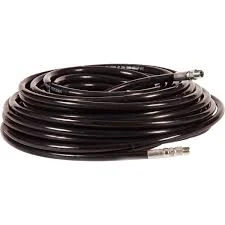Brake Booster Vacuum Hose to Carburetor - Essential Guide
Understanding the Brake Booster Vacuum Hose and Its Connection to the Carburetor
When it comes to automotive systems, one component that plays a crucial role in ensuring effective braking is the brake booster. This device utilizes vacuum pressure to enhance the power of the braking system, making it easier to stop the vehicle. A key element of this system is the brake booster vacuum hose, which connects the brake booster to the engine’s intake manifold or carburetor. Understanding how this hose functions can help car enthusiasts diagnose issues and maintain their vehicles effectively.
The brake booster vacuum hose is typically made of durable rubber or reinforced materials designed to withstand varying temperatures and pressures. Its primary role is to transport vacuum pressure from the engine to the brake booster. When the driver presses the brake pedal, atmospheric pressure pushes against a diaphragm within the brake booster, which is activated by the vacuum created by the engine. This amplified force is what allows the driver to apply the brakes with less effort.
brake booster vacuum hose to carburetor

If the vacuum hose is damaged or disconnected, the brake booster can lose its effectiveness
. Symptoms of a failing hose include a hard brake pedal, reduced braking power, and increased stopping distance. Moreover, a vacuum leak can lead to engine performance issues, such as rough idling or stalling, as the incorrect air-fuel mixture enters the combustion chamber.To maintain optimal performance, it’s essential to regularly inspect the brake booster vacuum hose for any signs of wear, such as cracks, splits, or loose fittings. Replacing a faulty hose can often resolve braking issues and improve overall vehicle safety. Additionally, ensuring that the connection between the vacuum hose and the carburetor is secure is equally important, as a poor seal can contribute to vacuum leaks.
In conclusion, the brake booster vacuum hose is a vital component in the vehicle's braking system that directly impacts both safety and performance. By understanding its function and potential issues, drivers can take proactive steps to ensure their vehicle remains in good working condition. Regular maintenance and inspection of this hose, along with the entire braking system, can go a long way in providing peace of mind and a safer driving experience.
-
Ultimate Spiral Protection for Hoses & CablesNewsJun.26,2025
-
The Ultimate Quick-Connect Solutions for Every NeedNewsJun.26,2025
-
SAE J1401 Brake Hose: Reliable Choice for Safe BrakingNewsJun.26,2025
-
Reliable J2064 A/C Hoses for Real-World Cooling NeedsNewsJun.26,2025
-
Heavy-Duty Sewer Jetting Hoses Built to LastNewsJun.26,2025
-
Fix Power Steering Tube Leaks Fast – Durable & Affordable SolutionNewsJun.26,2025

